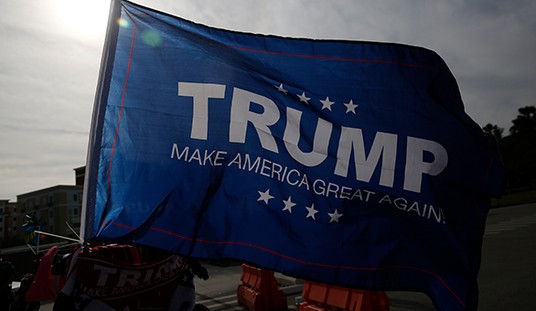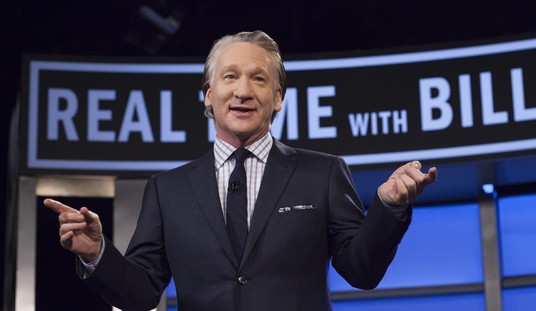The news that Walmart is ending all its Diversity, Equity, and Inclusion (DEI) practices is the clearest sign yet that this divisive ideology is on its way to the dustbin of history. For years, DEI has been a corporate mainstay, championed by progressives as a moral necessity. But under President-elect Donald Trump’s renewed leadership, a wave of common-sense governance is dismantling the foundations of this failing ideology.
DEI began as a movement promising fairness and opportunity. Yet in practice, it has often done the opposite—replacing merit with quotas and fostering division through ideological indoctrination.
The movement quickly became a mandatory framework for corporate America, with companies investing billions in implicit bias training and hiring practices designed to prioritize identity over competence. While DEI advocates claimed these initiatives created more equitable workplaces, the reality was often resentment, lower morale, and diminished productivity.
Walmart, like many corporations, adopted DEI not out of genuine conviction but to appease activists and shield itself from backlash. However, as public sentiment has shifted, businesses are reassessing whether these programs are worth the cost. DEI’s waning influence signals that Americans are growing tired of being subjected to ideologies that divide rather than unite.
Donald Trump has been instrumental in challenging DEI’s ideological grip. During his first term, Trump issued an executive order banning critical race theory in federal training programs, calling it un-American and divisive. This bold action confronted the narrative that the United States is an inherently oppressive society and reaffirmed the country’s commitment to equality under the law.
Recommended
Although the Biden administration reversed Trump’s ban, the cultural impact of his policy was lasting. His stance inspired resistance to DEI’s encroachment into workplaces, schools, and government.
With Trump returning to the White House, his second term promises an even stronger push against this divisive framework. Policies expected under his administration, such as cutting federal funding for DEI initiatives, will empower states and businesses to abandon these practices without fear of government reprisal.
Walmart’s decision to abandon DEI reflects a broader cultural shift. For years, corporations were pressured into prioritizing wokeness over their core missions. Yet recent data shows that DEI programs are not only ineffective but counterproductive. Mandatory training often increases resentment and reinforces stereotypes rather than breaking them.
As America’s largest private employer, Walmart’s move is a significant bellwether. The retail giant’s decision is not just about cutting costs—it’s about restoring focus on what made the company successful: delivering value to its customers and opportunities to its workers based on merit, not ideology. Other corporations are likely to follow Walmart’s lead, recognizing that DEI is a liability, not an asset.
The failure of DEI lies in its premise. By dividing people into categories of oppressors and oppressed based on race, gender, or other immutable traits, DEI has perpetuated a culture of victimhood and entitlement. This approach is fundamentally at odds with America’s founding principles, which champion equality under the law and individual merit.
Under President Trump’s renewed leadership, the nation is rejecting these divisive narratives. Americans are pushing back against the idea that systemic racism or bias defines their country. Instead, they are embracing a shared national identity built on opportunity, merit, and hard work.
This cultural shift is already evident in education and employment. Parents are fighting back against indoctrination in schools, while employees are challenging corporate DEI programs that stifle free expression and promote identity politics over competence. Trump’s unapologetic stance against political correctness has emboldened Americans to reclaim institutions that should unite rather than divide.
The end of DEI marks a turning point for America. Without its divisive framework, workplaces can return to prioritizing merit and teamwork. Companies can focus on delivering value instead of pandering to activist demands. Most importantly, Americans can move beyond the corrosive identity politics that have dominated public discourse for too long.
Walmart’s decision is a step toward this brighter future. As other companies follow suit, the DEI industry—an entrenched bureaucracy profiting from division—will face an inevitable decline. This is not just a corporate trend but a cultural renaissance driven by the values Trump has championed throughout his political career.
Trump’s leadership has exposed DEI for what it is: an ideological experiment that failed to deliver on its promises. Under his administration, policies will favor unity, equal opportunity, and merit-based advancement. As businesses and institutions shed the burdens of DEI, they will rediscover the principles that make America exceptional.
The decline of DEI is a victory for common sense and the American spirit. It is a rejection of narratives that paint the nation as irredeemably flawed and its people as victims or villains. Instead, it reflects a renewed commitment to fairness, opportunity, and the belief that success should be earned, not handed out based on identity.
Walmart’s bold decision and the broader cultural shift it represents are reasons for optimism. Americans are ready to move forward, united by shared values rather than divided by ideology. As DEI fades into irrelevance, the country can focus on building a future defined by merit and opportunity for all.
In the coming years, this transformation will be seen as one of Trump’s enduring legacies—a decisive victory over the forces of division. DEI will be remembered as a cautionary tale of ideological overreach, relegated to the dustbin of history where it belongs.
With Trump’s leadership, the nation is reclaiming its founding ideals and charting a course toward unity and prosperity. The time is now for all of us to support his fight to dismantle DEI once and for all!
Bob Rubin is the President of Rubin Wealth Advisors. Learn more at www.rubinwa.com























Join the conversation as a VIP Member